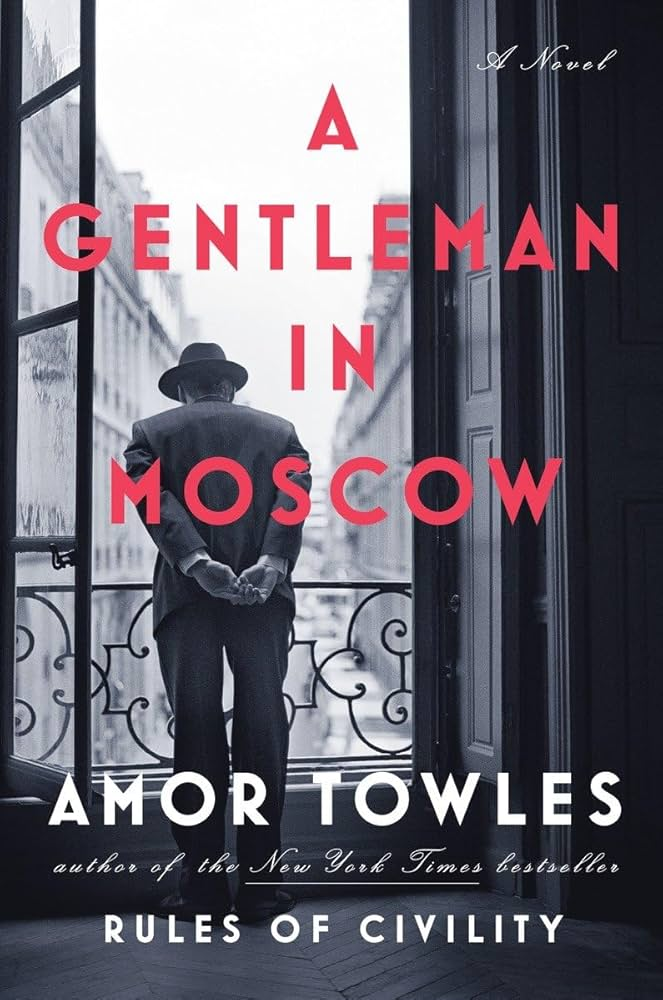A Gentleman in Moscow
By Armor Towles
It is 1922, and the Bolsheviks have just defeated the czar. One of their first tasks? Weed out the aristocratswho had once propped up and benefited from imperial rule. Enter Alexander Rostov -- make that Count Alexander Rostov -- who, appearing before a Bolshevik tribunal, is jovially and stubbornly unrepentant about his station in life. Asked what his job is, for example, he replies, "It is not the business's of gentleman to have jobs." Right. It appears he is heading for the firing squad. But apparently, he penned a revolutionary-minded poem in the early days of the Bolshevik's struggle that had garnered widespread attention and made Rostov something of a hero. Never mind that he didn't actually write it, something the reader finds out well into the book, it is enough to spare Rostov's life.
Kind of. He is henceforth banished to the Metropol hotel in Moscow, where he had kept rooms as a permanent lodger for some time. It seems a pretty light sentence, given the luxury in which he lived. But then he is forced out of his rooms, where some of his family's antiques remain, and forced into former servants quarters on the abandoned sixth floor.
For a time, it seems a dreadful sentence, one worse, perhaps, than death. In fact, the Count, after a decade or so, appears ready to reverse the tribunal's benevolence with his own hand. But he doesn't. Instead, he builds a life within the hotel. Most significantly, he befriends a little girl, Nina, who shows him the hotel's secrets and, with it, the secrets of the lives who occupy it. Through Nina, the Count builds real friendships. His escapades for a time nearly always result in his pants splitting, which leads to a friendship with the hotel's seamstress, Nina. He applies his skills as a gentleman to a waiting position at the hotel's fine restaurant, which brings him close to the chef, Emile, and matre d. And, finally, Nina, grown and married, comes to him in a panic many decades into his stay, gives him what proves to be his most meaningful relationship of all: a daughter. Her husband has been sent to a gulag, and she is following. Would he please watch little Sofia and until her return? He has no choice but to say yes. And then, when Nina never returns, to continue to say yes for the rest of his life.
For most of the novel, there is little plot here. We follow the history of the revolution seen from the eyes of one who does not live its harshest results. Though technically confined, Rostov is, as someone points out, the luckiest man in Russia. Along the way, the Count engages in conversations on philosophy and metaphysics. But Towles writes in a snappy way that keeps the reader engrossed, and the Count becomes something of a friend. He is as charming to the reader as he is to his fellow guests. The point/message/moral? Not exactly sure, but perhaps it is something like Thoreau's famous quip, "I have traveled a great deal in Concord." That is, there is far more of interest right under our noses if we only care to look.
The book changes tenor in its final chapters, though, as Sophia gains notoriety as a talented pianist and the Count plans a daring Paris escape to the American embassy for her. Where the count ends up, though, is something of a mystery. He leaves the hotel, we know that. But the final scene has him back in his hometown outside St. Petersburg. Has he become a "free" man?


